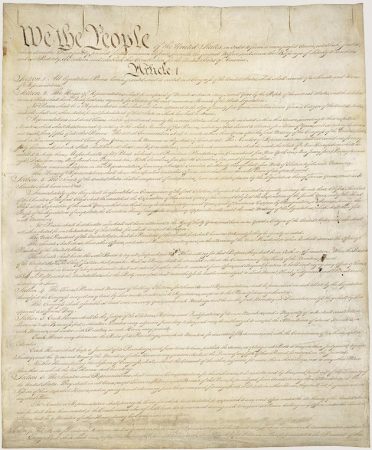“ESSENTIAL” SERVICES EXEMPTED FROM CLOSURE ARE WIDE-RANGING
by Sharon Rondeau

(Sep. 24, 2013) — With a September 30 deadline to pass funding legislation approaching, Obama has warned of a government shutdown which he claimed would stop military members’ paychecks and halt the processing of small business loans.
Obama wants the debt limit increased so that the United States would not “run out on our tab.” Obama’s putative Treasury Secretary, Jack Lew, said that “the repercussions could be serious” if Congress does not raise the debt limit, currently set at $16.7 trillion.
Article I, Section 7 of the U.S. Constitution states that “All bills for raising revenue shall originate in the House of Representatives; but the Senate may propose or concur with amendments as on other Bills.” The new fiscal year begins on October 1. When appropriations are not approved by the deadline, a “funding gap” ensues which can be forestalled by passing an interim continuing resolution (page 1).
Article I, Section 9 states that “no money shall be drawn from the treasury, but in consequence of appropriations made by law.”
On Friday, the House passed a bill which funds government functions but defunds the unpopular health care bill known as “Obamacare.” Senate Majority Leader Harry Reid has promised that defunding Obamacare is “dead on arrival,” and Obama has said he will not negotiate on the debt ceiling issue.
State health insurance exchanges are officially set to begin enrollment on October 1 if the bill is not defunded. Obamacare has been reported in recent months to have caused employer layoffs numbering in the thousands of employees and for individual plans to have doubled or tripled in cost. Many employers have reduced their workers’ hours to avoid the mandate to provide insurance for employees working 30 hours a week or more.
About half the states have chosen not to implement the exchanges.
As he did in January, Obama said that Republicans are gambling with the U.S. economy by not raising the debt ceiling. However, as a U.S. senator in 2006, Obama had said that “raising America’s debt limit is a sign of leadership failure. It is a sign that the U.S. Government can’t pay its own bills. It is a sign that we now depend on ongoing financial assistance from foreign countries to finance our Government’s reckless fiscal policies.”
The Huffington Post characterized the House’s proposal as “Ignoring the wishes of the White House and the Senate,” but all members of Congress are elected by the people as outlined in Article I, Section 2 of the U.S. Constitution.
The last time an appropriations bill was not passed by a deadline was in 1995 under President Bill Clinton. Some government services closed and a number of federal employees worked unpaid until appropriations were restored.
Activity which was suspended twice in fiscal year 1996 included the Centers for Disease Control’s (CDC) monitoring of diseases; national parks’ accessibility to the public; the processing of passport applications, some veterans’ services and toxic waste cleanup. At the time, Congress and Clinton were not able to reach agreement, with Clinton having vetoed a continuing resolution.
Also in 1996, the National Institute of Standards and Technology (NIST) missed its deadline of January 1, 1996 to issue new standards for “lights and lamps.”
While furloughed employees from 1996 were eventually paid, the Congressional Research Service (CRS) reported last month that pay is not guaranteed (page 9). Members of Congress are not subject to furloughs, while their staffers and those of Article III judges might not draw paychecks during times without appropriations (page 12).
The Antideficiency Act, which was passed in 1884 and amended in 1982, states that new financial obligations may not be agreed to during times when appropriations have not been approved.
The August 2013 CRS reported that in the event of a lapse in appropriations, government activities “that protect life and property” would continue. Services considered “essential” are those associated with “national security,” medical care, transportation, border patrol, the operation of prisons, and law enforcement.
In 1996, operation of the courts continued for two weeks, paid for with “non-appropriated funds” held in reserve. A similar scenario could unfold if a spending bill is not approved by both legislative chambers and signed by the putative president by September 30.
In regard to national security, the CRS report states that “Historically, individuals responsible for supporting the nation’s global security activities, public safety efforts, and foreign relations pursuits have been excepted from furloughs that accompany a government shutdown” (page 19).
Many agencies prepare statements on the services which are expected to be affected in the event of non-appropriations.


Obama is only concerned that his vacation and Whithouse party budget will be suspended?!!?!?!
Why do we have non-essential positions if they’re NON-essential anyway?